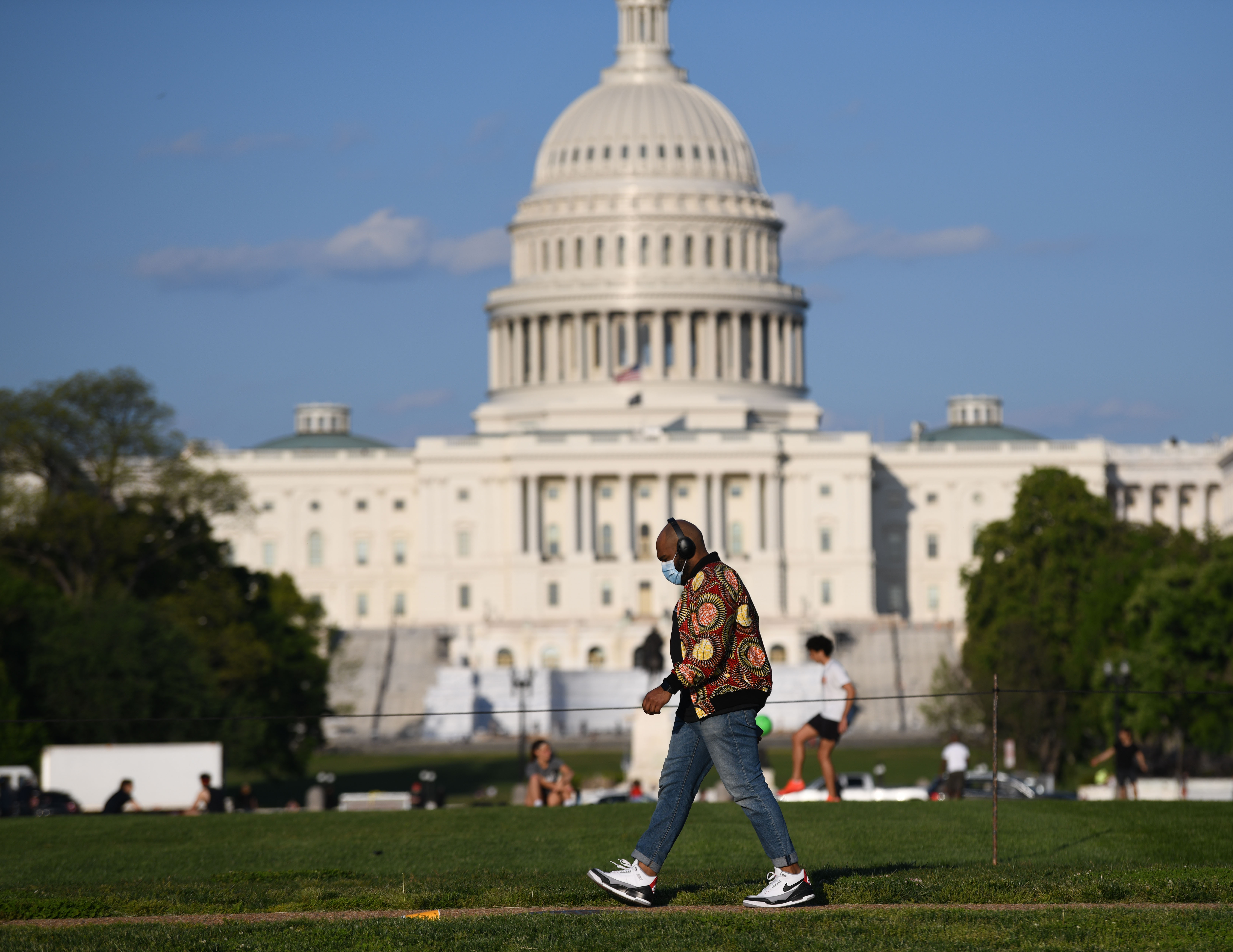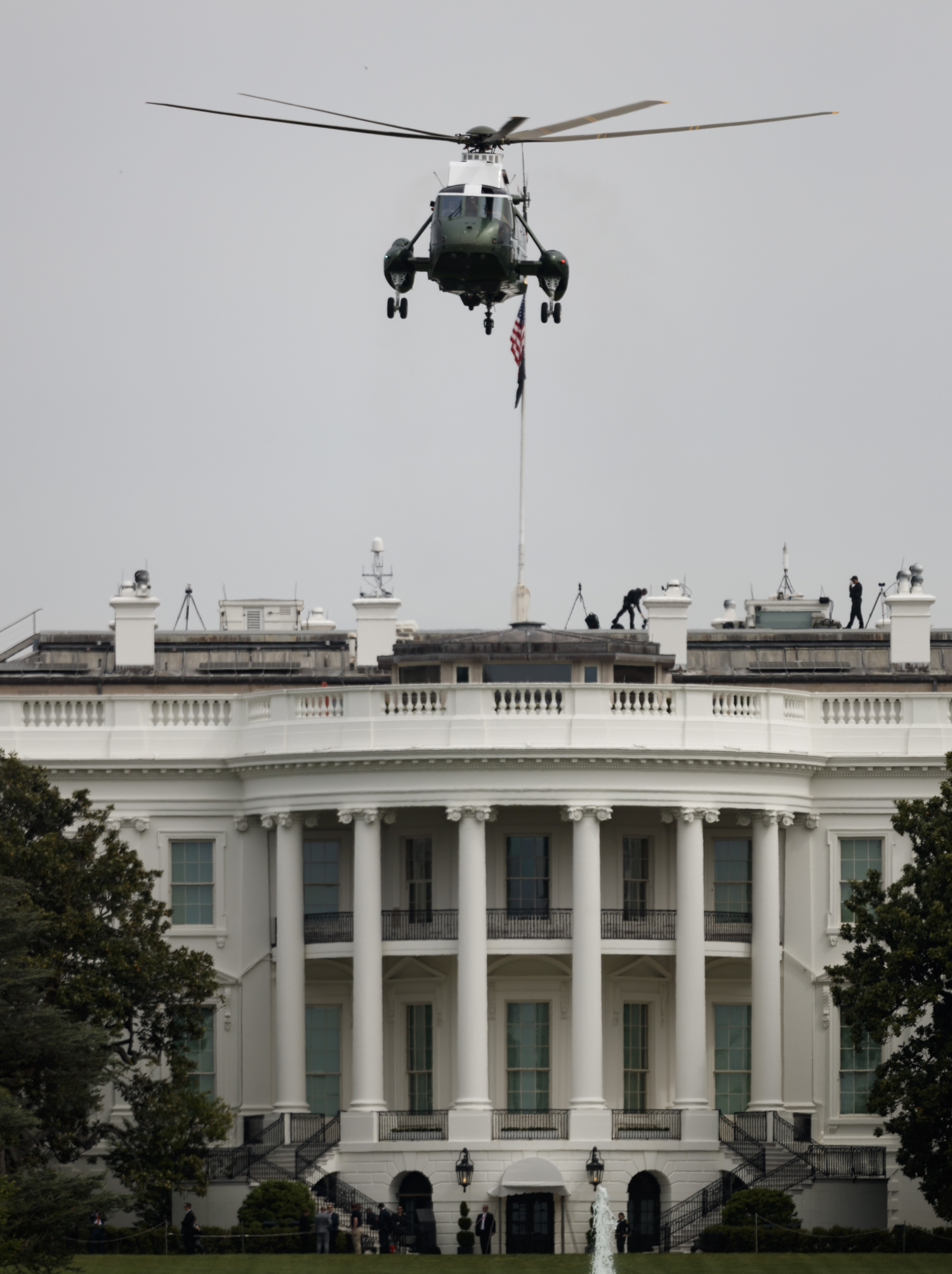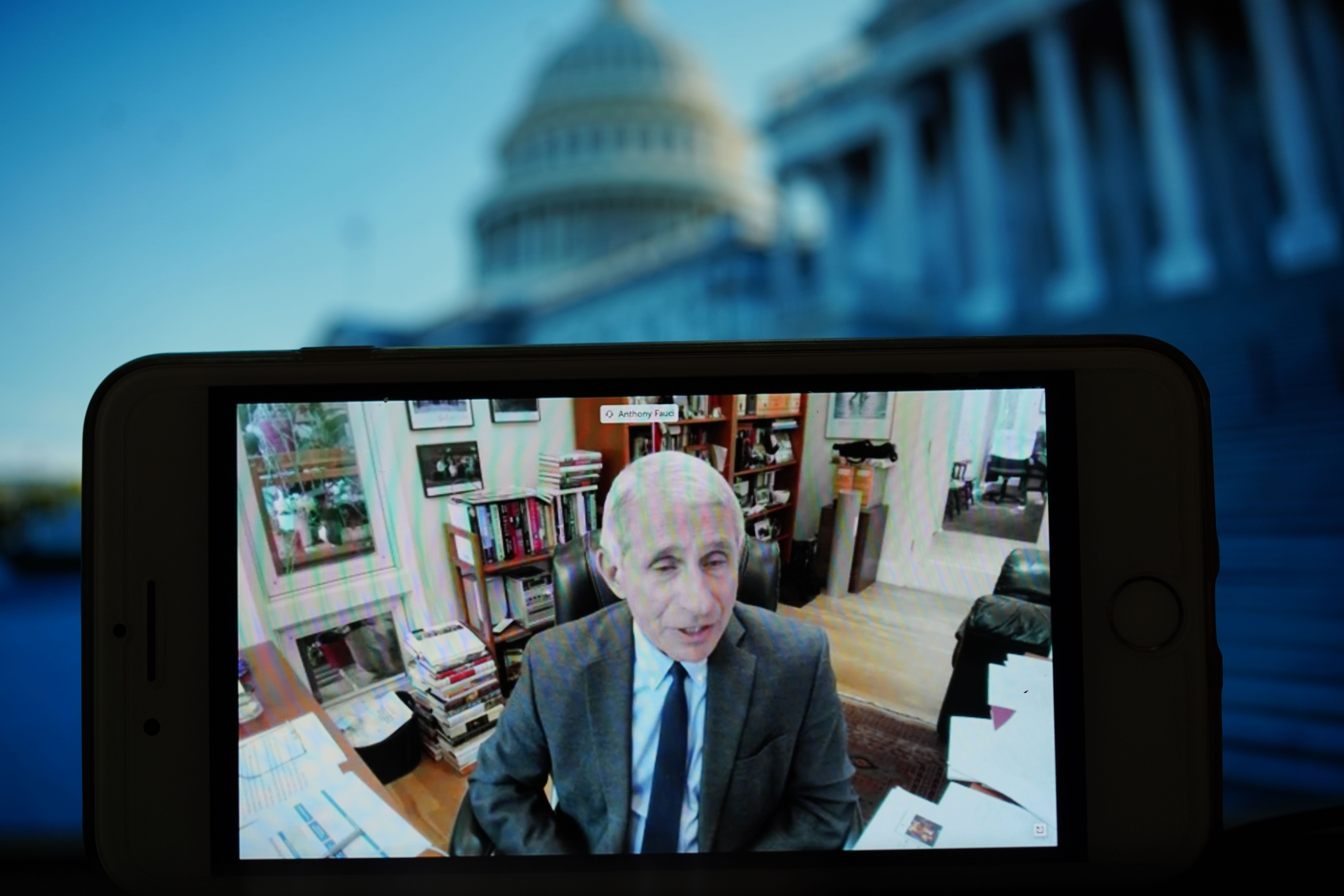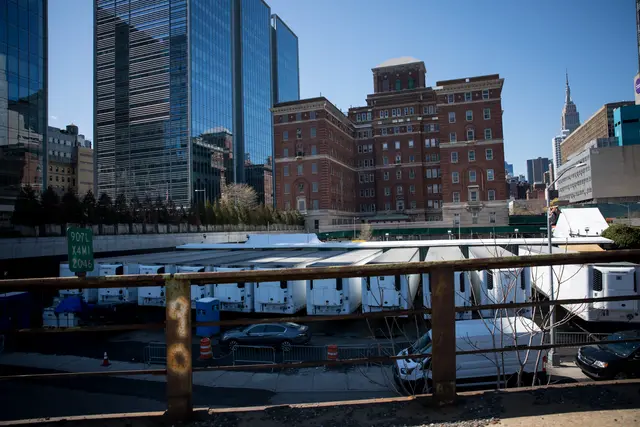--Just as Americans are desperate for the missing facts of the U.S. fight against COVID-19, the world is awaiting Washington's answers to a swarm of unanswered questions.
--the Fort Detrick lab is merely the tip of the iceberg of mysteries surrounding the U.S. administration's handling of the coronavirus epidemic in the country.
--In the face of the COVID-19 epidemic, the United States has indeed had sufficient time to prepare, but only ended up squandering two irretrievable months.
--As the international community is ramping up a collective fight against COVID-19, some in the United States have politicized the virus for personal and political gains domestically, while others have been busy mounting a smear campaign against other nations and international organizations on the global stage.
by Xinhua writer Guo Fengqing
WASHINGTON, May 15 (Xinhua) -- As the COVID-19 pandemic keeps ravaging across the globe, the United States has reported more than 1.4 million cases of infections and over 84,000 deaths, making it the country with the largest number of confirmed cases and fatalities worldwide.
Such a worrisome situation has not only dealt a blow to the U.S. public and economy, but also revealed more serious and perplexing questions surrounding its response to the novel coronavirus crisis.
In a recent opinion piece published in the latest issue of The Atlantic, U.S. foreign policy writer George Packer lamented: "Every morning in the endless month of March, Americans woke up to find themselves citizens of a failed state."
It might be impossible to reverse time and make up for the squandered months and lost lives, but it's possible to complete the puzzle by picking up the missing pieces. Just as Americans are desperate for the missing facts of the U.S. fight against COVID-19, the world is awaiting Washington's answers to a swarm of unanswered questions.
IS IT STILL LIKELY TO TRACK DOWN "PATIENT ZERO?"
On March 27, the U.S. Centers for Disease Control and Prevention (CDC) restored the U.S. Army Medical Research Institute of Infectious Diseases, a military center for biological research in Maryland state, to full operation.
However, the gloom surrounding the abrupt shutdown of the institute did not fade subsequently. In July, the CDC, citing "national security reasons," ordered the institute to halt research involving biological select agents or toxins, without providing more information.
An online petition was later submitted on the White House petition site, demanding the U.S. government explain the real reason for the closure of the institute, which has a history of multiple accidents, and clarify whether there was a virus leak from its Fort Detrick lab.
As a matter of fact, the Fort Detrick lab is merely the tip of the iceberg of mysteries surrounding the U.S. administration's handling of the coronavirus epidemic in the country.
The United States reported its first case of COVID-19 on Jan. 21, and the first death on Feb. 29, according to U.S. CDC data. On May 5, U.S. media disclosed that the novel coronavirus had infected as many as 171 people in Florida as long as two months before officials announced it had come to the state.

A man wearing a face mask takes a walk near the U.S. Capitol building in Washington D.C. May 13, 2020.(Xinhua/Liu Jie)
In late April, health authorities of Santa Clara County in California confirmed that two patients had died of COVID-19 on Feb. 6, at least three weeks before the first official known U.S. death from the virus.
On April 30, Belleville Mayor Michael Melham tested positive for COVID-19 antibodies and believed he had contracted the virus in November, despite a doctor's reported assumption that what Melham went through was just flu, he said in a news release.
On March 11, CDC Director Robert Redfield told a hearing on Capitol Hill that some COVID-19 deaths have been diagnosed as flu-related in the United States.
Last week, the University of Washington revised up its projection of COVID-19 deaths in the United States to more than 134,000 through August. Regretably, the U.S. government has yet to make public the real epidemic data in a comprehensive, timely and accurate manner.
As of 8:30 a.m. Beijing Time (0030 GMT) on Friday, there have been more than 1,417,350 cases of infections and 85,884 coronavirus-related deaths in the United States, according to the latest tally compiled by the Center for Systems Science and Engineering at Johns Hopkins University.
HOW MUCH EPIDEMIC INFORMATION IS CONCEALED BY U.S.?
On May 5, U.S. President Donald Trump and other administration officials said that the White House would wind down the coronavirus task force in the coming weeks and focus on restarting the economy.

Marine One carrying U.S. President Donald Trump takes off from the South Lawn of the White House in Washington D.C. May 5, 2020.
(Photo by Ting Shen/Xinhua)
The announcement caused so strong a backlash from the U.S. public that Trump said the task force would continue "indefinitely" with possible personnel changes one day later.
The inconsistency that the Trump administration has shown in disbanding the task force is a reflection of the U.S. government's incompetent response to the coronavirus outbreak in the country.
In the face of the COVID-19 epidemic, the United States has indeed had sufficient time to prepare, but only ended up squandering two irretrievable months.
On Jan. 3, the Chinese and U.S. CDCs talked over phone about the epidemic outbreak, and the U.S. side has since received updates on the epidemic from China on a regular basis.
As early as January, the White House received advice from experts and the intelligence services about the need for urgent mitigation measures against the spread of the virus. Nevertheless, it had chosen to play down the severity of the virus until early March.
Amid the coronavirus epidemic, several U.S. senators, including Richard Burr, who chairs the Senate Intelligence Committee, came under fire after multiple media reports revealed they had sold off their stocks shortly before the COVID-19 pandemic roiled U.S. financial markets.
 Traders work at the New York Stock Exchange (NYSE) in New York, the United States, March 12, 2020. (Xinhua)
Traders work at the New York Stock Exchange (NYSE) in New York, the United States, March 12, 2020. (Xinhua)
Days before his stock sell-offs on Feb. 13, Burr penned a Fox News op-ed with Senator Lamar Alexander, saying that "the United States today is better prepared than ever before to face emerging public health threats, like the coronavirus."
Almost two weeks later, Burr told a gathering at a luncheon that the coronavirus is "much more aggressive in its transmission than anything that we have seen in recent history," according to an NPR report.
As more data becomes available, a painful truth has emerged that the elderly and ethnic minorities are more vulnerable to COVID-19 than other groups of people in the United States.
At least 27,700 residents and workers have died from the novel coronavirus at nursing homes and other long-term care facilities for the elderly in the United States, according to a New York Times database.
In an article published on The Atlantic on March 25, Ed Yong said, "Rudderless, blindsided, lethargic, and uncoordinated, America has mishandled the COVID-19 crisis to a substantially worse degree than what every health expert I've spoken with had feared."
WHAT U.S. HAS DONE IN GLOBAL ANTI-PANDEMIC FIGHT
As the international community is ramping up a collective fight against COVID-19, some in the United States have politicized the virus for personal and political gains domestically, while others have been busy mounting a smear campaign against other nations and international organizations on the global stage.
On April 14, Trump announced that his administration would halt funding to the World Health Organization (WHO), defending his own handling of the outbreak after the administration has been scrutinized for downplaying the threat from the coronavirus early on and faulted for delays in testing.
The announcement was then met with strong backlash and criticism across the world. WHO Director-General Tedros Adhanom Ghebreyesus said the WHO regretted the U.S. decision, calling on all nations to be united in the common struggle against the common enemy.

Fauci, a top expert on infectious diseases in the United States, said on May 12 that the nation has not had the ongoing novel coronavirus outbreak under "total control" yet.(Xinhua/Liu Jie)
Richard Horton, editor-in-chief of The Lancet, tweeted, "President Trump's decision to defund WHO is simply this -- a crime against humanity," adding that "every scientist, every health worker, every citizen must resist and rebel against this appalling betrayal of global solidarity."
Since the coronavirus hit the United States, immigration authorities have deported thousands of migrants, some of whom tested positive for the virus after returning, leaving governments across Mexico, Central America and the Caribbean struggling to respond, according to The Washington Post.
In an email to the media outlet, U.S. Immigration and Customs Enforcement said it had deported 2,985 people in the first 11 days of April, without answering questions about continuing deportations during the pandemic.
Once the chief architect of the international order that all but assured its primacy, the United States has now depicted itself a victim at the hands of everybody. In this case, China is the obvious choice for the Trump administration to blame, for the timely alarm it has sounded to the world about the danger of the novel coronavirus, and the tremendous valuable support it has provided for various countries worldwide.
"We can learn from these dreadful days that stupidity and injustice are lethal," said Packer. "The fight to overcome the pandemic must also be a fight to recover the health of our country, and build it anew, or the hardship and grief we're now enduring will never be redeemed."
(video reporters Zhang Mocheng,Hu Yousong,Zong Pingping,Zhao Xu)
(video editor Zhu Cong)
 简体中文
简体中文

